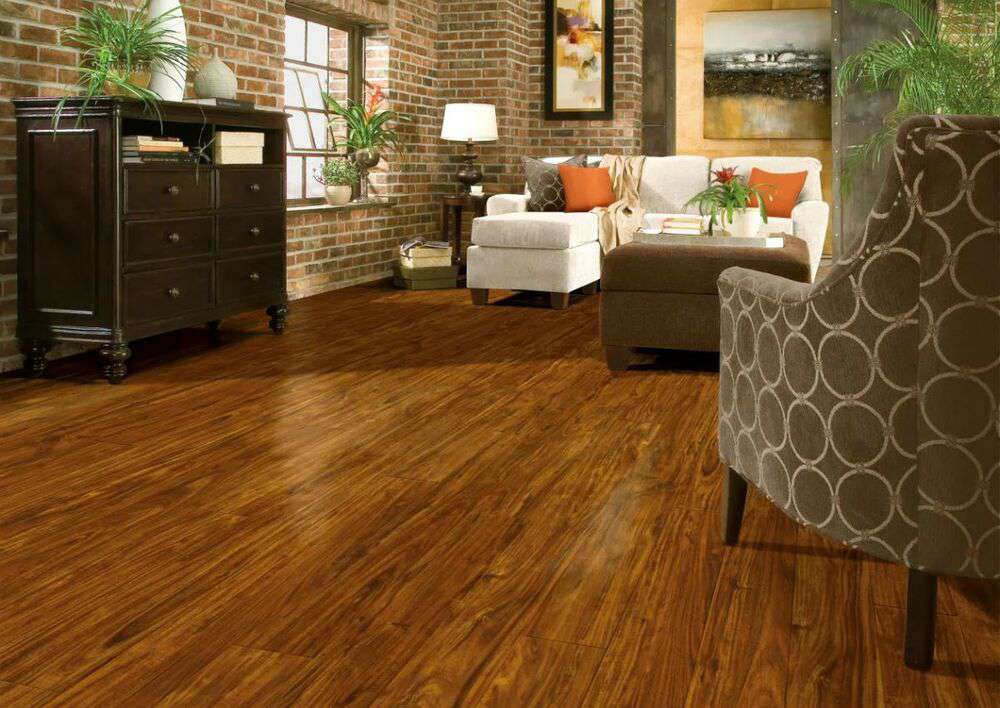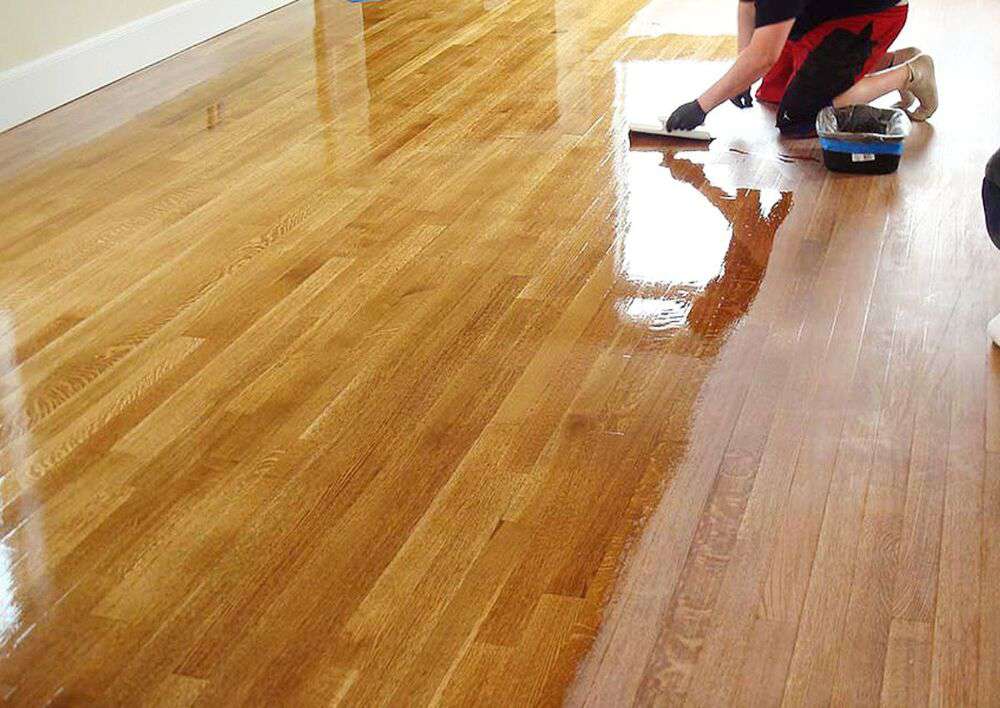Refinish or replace hardwood floors when there is a problem with the floors, and the debate erupts. Several factors warrant floor refinishing or replacement, ranging from scratches to dents and gaps to age.
When these abnormalities occur and persist, it is only natural to consider your next course of action. But how do you know whether to refinish or replace if you can afford a new one? How do you know if you should take the other path?
This decision is influenced by a number of factors, and this blog post will assist you in making it. With time, hardwood floors become dull, scratched, and lose their luster. However, it differs from other types of flooring in that it can be refinished. And, as with other floors, certain conditions necessitate replacement.
What Do Hardwood Refinishing And Replacement Entail?

Before we get into the refinish or replace hardwood floors debate, let’s first define the terms.
Floor refinishing does not necessitate as much technical knowledge as floor replacement. The only tools required for the job are a drum sander, stain, and lacquer. There are various tips for refinishing hardwood flooring save money while restoring the shine to your floor.
That’s it for refinishing hardwood floors. The process breakdown is more akin to attempting to paint a house. However, replacing hardwood floors is a more technical task. Professionals install floors in a variety of patterns and techniques.
When replacing hardwood floors, the old floor must be removed using a spade bit, power drill, wood chisel, and other tools. After prying up the old board, you cut out equal strip surfaces for the replacement. Taping, nailing, and patterning are required to secure this in place. These are technical steps.
You will need to hire a professional because you cannot do it yourself. Replacement necessitates the purchase of new wood and other resources, as well as payment for professional services. All of this adds up to a more expensive endeavor than simply refurbishing. So, why should you be debating whether to refinish or replace your hardwood floors in the first place?
Check out: 5 Steps To Choose The Best Floor Renovation Service?
When Hardwood Floors Truly Need Replacing

Structural Damage
One of the most common reasons for a full hardwood floor replacement is structural damage. Water leaks, termites, and accumulated rot are all potential causes of a damaged subfloor.
The subfloor is often overlooked, but it is the most important layer of the flooring system. A damaged subfloor, as the foundation of your hardwood, usually necessitates immediate attention and replacement. If you hear squeaking in certain areas of your floor, see sagging spots, or smell a musty odor, it’s time to call the pros.
Severe Flooring Damage
Of course, severe flooring damage is another reason for a complete hardwood floor replacement. When more than 30% of your hardwood floor has been damaged, replacing the flooring is more cost-effective than attempting to refinish the hardwood. Warping, chipping, stains, and termite infestation are all common causes of severe floor damage. Water exposure can also cause severe flooring damage by creating uneven surfaces over time.
Floor Movement
Floor movement is frequently caused by seasonal changes. Hardwood floors frequently expand slightly during the summer months. When winter arrives, the foundation will often experience a contract period. Don’t be alarmed; this slight floor movement is perfectly normal. Small gaps that occur during this movement can be restored by refinishing. When hardwoods experience significant movement, and wider gaps appear between boards, it’s time to replace them.
Extreme Wear
Extreme wear is another sure sign that your hardwood floors need to be replaced. While hardwood floors have a long lifespan, they can only be refinished ten times before needing to be replaced. When hardwoods are refinished too many times, the grooves in the planks and nails become visible.
⇒ To keep your wooden floor stay shining and have a longer lifespan: Best 5 Tips For Cleaning Wooden Floor & Maintaining
Refinish or Replace: How To Choose The Best For Your Hardwood Floors?

Is it cheaper to refinish floors or replace hardwood floor? If cost is your primary concern, refinishing will always be the less expensive option. Aside from that, the following factors determine whether refinishing or replacement is the better option.
Time
Surprisingly, refinishing a hardwood floor takes longer than replacing it. Refinishing a floor necessitates making a lot of messes before things fall back into place. Refinishing hardwood floors in Galway can take up to four or five days on average.
When replacing a floor, you must first remove the old one and install a new one. However, you can only do this with the assistance of a professional. However, it takes less time overall. As a result, if time is an issue, it is preferable to choose the latter in the refinishing vs replacement debate.
Aesthetic factors
Hardwood floors are popular due to the aesthetics they provide. The floor’s appearance influences the overall appearance of the space. Fashion, species, artistry, and direction are examples of aesthetic factors.
If these are still to your liking, a simple refinishing may suffice. However, if you want to improve the aesthetics of your floor, you should replace it.
Age
Time flies, and you may use the same floor for decades without realizing it. The only way to tell is that the floor will almost certainly be boring. Refinishing old hardwood floors may be difficult. If your floor is several decades old, you may have done some refinishing.
In this case, it may resist further refinishing because it will not make a significant aesthetic difference. It’s better to get something new and exciting for a change.
Pros And Cons Of Refinishing Vs. Replacing Hardwood Floors
Refinishing
Refinishing your floor provides the following advantages:
- Refinishing allows you to save money. You simply need to sand the floor and stain it again. You may even save money if you do it yourself.
- An enhancement to the aesthetics of the floor. Your floor will shine again, especially if you hire professionals.
- Increases the resale value of your home. When you refinish your floor, it appears brand new. This increases the value of your home if you ever decide to sell it.
- Pest protection and safety. Damaged hardwood floors can serve as a breeding ground for pests. You also protect your floor from further damage.
The only disadvantage of refinishing your hardwood floor is that it takes longer.
Replacing
The advantages of replacing your hardwood floor are as follows:
- It changes the look and feel of your home. You can change the floor’s style and use higher-quality hardwood.
- Increases the value of your home.
- It offers you better efficiency and functionality.
The only disadvantage of replacing your hardwood floor is that it is more expensive.
Conclusion
Many factors influence your decision to refinish or replace hardwood floors. Furthermore, your personal circumstances may influence your decision. We hope that the above perspectives can help you make your decision easier.
If you come to Iconic Cleaning right away, we’ll take care of the situation. We have a team of highly qualified and experienced employees. We also have a lot of modern equipment and eco-friendly chemicals, so the cleaning process will be quick and simple. Call +353 87 395 6099 or visit our website.